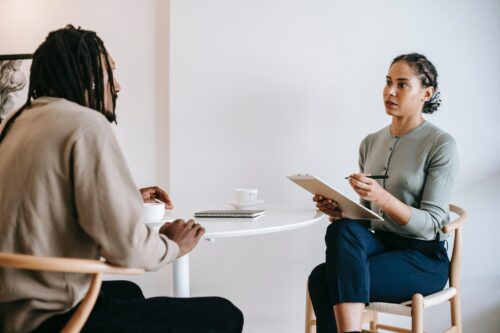Oakland, CA – Psychotherapist Offers Some Important BIPOC Mental Health Facts
Posted in: Industry News
 We’re no strangers to hard times, nor are we immune from feeling the adverse effects that troubling times bring. The state of mental health in America has certainly been better and, between COVID-19 and other political tensions that have emerged over the years, we have seen a discernible increase in mental health services.
We’re no strangers to hard times, nor are we immune from feeling the adverse effects that troubling times bring. The state of mental health in America has certainly been better and, between COVID-19 and other political tensions that have emerged over the years, we have seen a discernible increase in mental health services.
Just because the need for mental health services has increased, however, does not mean that each community enjoys equal access to those services. BIPOC communities, who are equally susceptible to mental health issues as any other community of people, face numerous barriers to receiving treatment.
Urban Health Group provides important BIPOC mental health facts that not only illustrate this, but show why it’s important to get the help you need regardless.
BIPOC Mental Health Facts
We are truly in troubling times. Studies show that nearly 1 in 5 Americans today are struggling with mental illness, and it is the leading cause of disability. However, statistics regarding BIPOC individuals compared to White individuals show disparity in regard to treatment.
According to Mental Health America, 17% of Black people and 23% of Native Americans live with mental illness, but studies show they are less likely to have access to mental health services, less likely to seek treatment as a result, more likely to receive low quality of service, and thus more likely to end services prematurely as a result.
In fact, Black Americans are nearly 20% more likely to experience serious mental health problems than the general population, while Black youth exposed to violence at a young age are more likely to develop PTSD by the age of 25 than other populations as well.
The fact of the matter is BIPOC people are equally, if not more, susceptible to mental illness, but receiving treatment at a much lower rate compared to other demographics.
Why the BIPOC Community is Underserved
A variety of factors play into these figures to explain them, and no one reason is truly the reason why BIPOC communities are underserved when it comes to mental health.
First, systemic racism and discrimination is alive and well in America. While most or all mental health practices may claim to see no color, some will have preference to a certain clientele, whereas some will make no effort to serve communities with lower income or lesser means to serve as a natural barrier of entry.
In addition, mental health treatment remains stigmatized. Organizations like the National Council for Behavioral Health have tried to destigmatize the field in recent years, but many members of the community still view seeking help as weakness or a personal failure.
Get Help Today!
Mental health issues are a serious problem, and made all the more serious if you choose to try managing things by yourself. That’s where Urban Health Group comes in.
Not only do they offer expert insight and experience to help people find the mental health services they need, they also serve the BIPOC community to help break down a variety of barriers and make care accessible for everyone.
Take the first step towards better mental health today by calling Urban Health Group.
Return to: Oakland, CA – Psychotherapist Offers Some Important BIPOC Mental Health Facts
Social Web